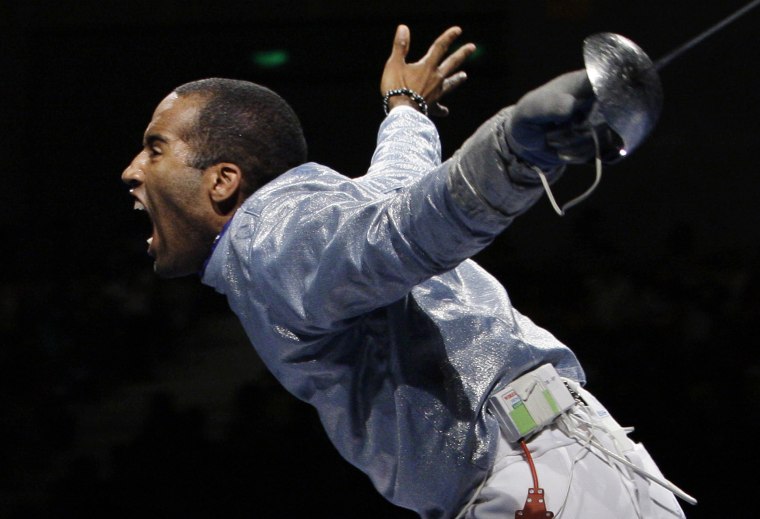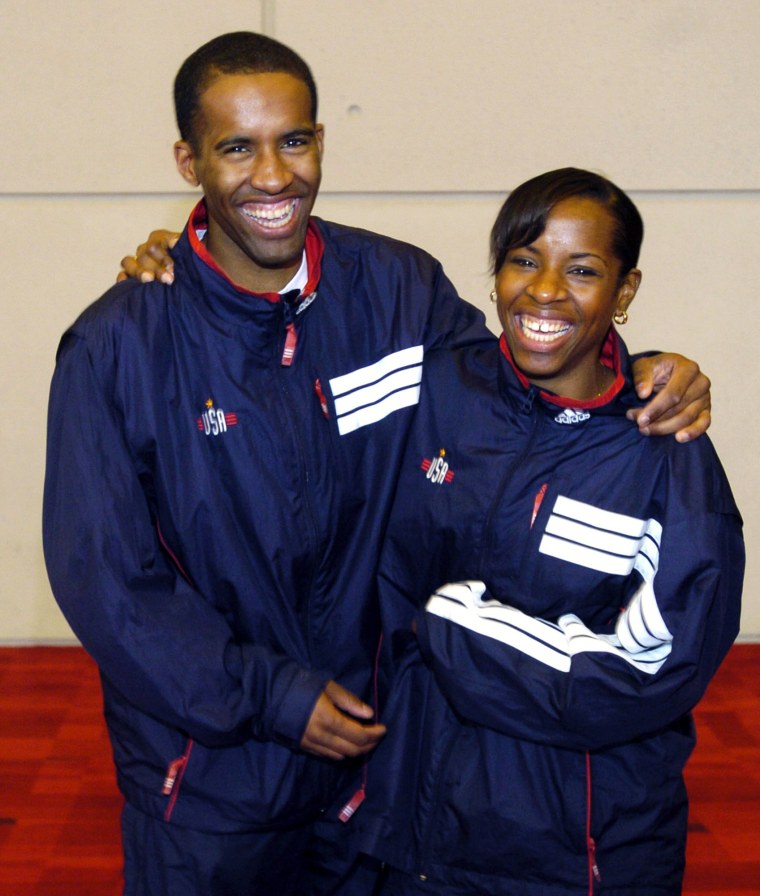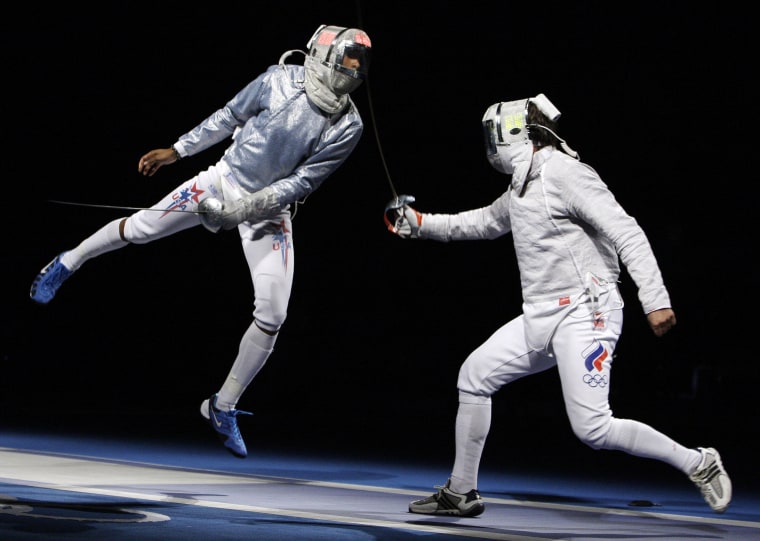The story of black Olympic fencer Keeth Smart is one of pride and sorrow. He became the first black American to reach No. 1 in the world in Sabre Fencing.
He was also part of the U.S. winning team in the 2008 Olympics where he won the silver medal.
He was born to Thomas and Audrey Smart. Audrey emigrated from Jamaica and they both ensured their two children, Keeth and Errin, would go to college.

According to NBC News, Thomas came across an article about the Peter Westbrook Foundation, named after the first African American fencer to win a bronze Olympic medal in the 1984 Games.
Though a white-dominated sport, their father persisted until Smart, then 11 and his sister Errin earned scholarships from the Peter Westbrook Foundation where they learned inner-city kids fencing but Smart found it hard to cope with the sport.
After three years, Smart was still struggling to find his feet in the game. His mother told him: “You’re not like a tiger. Need you to roar like a tiger.”
Both siblings earned fencing scholarships at Columbia University. Smart rose to No. 1 in the world and was the national champion in 2004 while his sister became a four-time national champion and a silver medalist in the 2008 Olympics.

The following year was a sad one for him. News reached him of his father’s sudden death while he was jogging. As if that was not enough, he soon learned that his mother had cancer and subsequently died.
After learning he had made the Olympic team, Smart got sick and was diagnosed with leukemia. This meant that his fencing career was over.
However, Smart was not ready to give in to the disease so he fought through until he was cleared to resume his career and when the games came, he prayed thus: “Mom, Dad, God, you got to help me through this. I’ve come too far. Take me home, mom and dad.”

Recounting their ordeal in the United States and Eastern Europe, Smart said he and his sister and other African American fencers from the Peter Westbrook Foundation endured racism every step of the way.
“It was really hard. When we were 12 and 13, my sister and I spent two weeks at a (fencing) camp in Hungary. We were by ourselves. Our parents could not afford to come. We saw everything under the sun as it relates to racism. They called us every name in their native tongue,” said Smart. “And people translated for us. But it taught us to stay together. And in the end, we did what we had to do and showed them what they thought of black people was not what their perceptions told them.”
A short documentary called “Stay Close” produced by PBS depicts his story.
“This film is really therapy for me. It’s really a family film. It’s been a fun way to recall my parents and what they mean to us and what they did for us,” Smart said in an interview with NBC News.
Reminiscing his parents as he watched the film, the 41-year-old said: “If it were not for them, I would never have been introduced to fencing. And I am indebted to Peter Westbrook and the Foundation because fencing allowed me to skip a couple of grades of life. I have traveled the world, which allowed me to see there was something more, a lot more, outside of Brooklyn. And it allowed me to gain the respect of others.”
“Stay Close” debuted on 6th January 2020 on the PBS Series.










